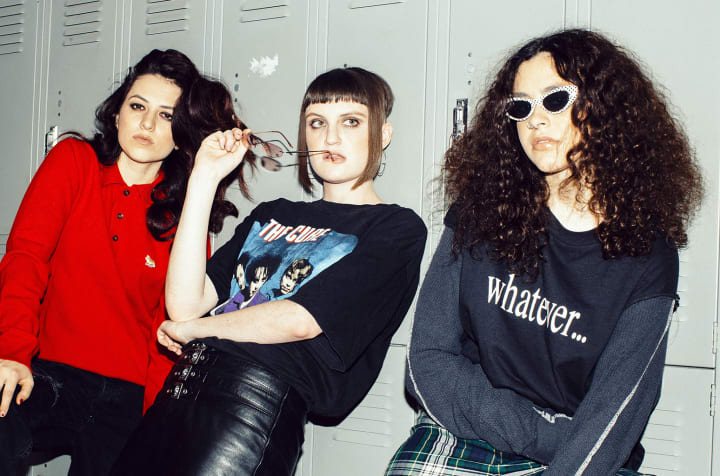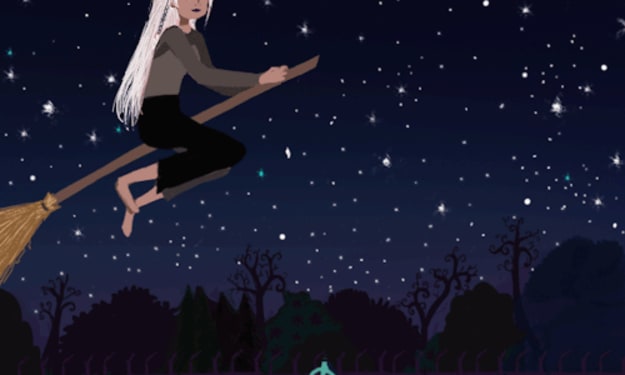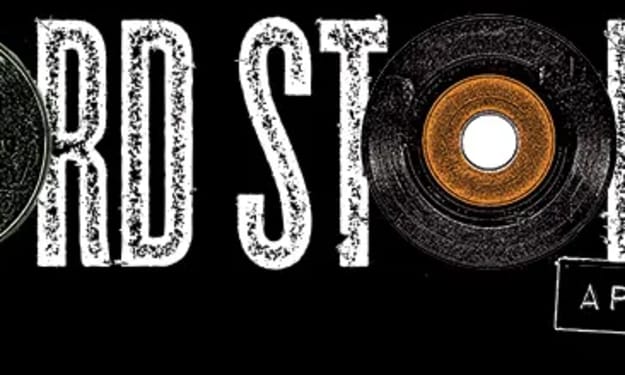The Empowerment of MUNA
How a Small Band Is Tackling Big Issues

MUNA is one of those rare bands, the ones that you didn't know you needed until you really listened to what they were really saying. Members Katie Gavin, Josette Maskin, and Naomi McPherson met while attending the University of Southern California in 2013 and by 2014 they had found their musical footing and released their first EP, More Perfect. Their tracks are reminiscent of 80s pop, featuring crisp drum sounds and vintage toned electric rhythm guitar parts. Gavin, the vocalist in the group, has a deep, somewhat accented singing voice with actual range, something that many indie singers lack.
All three members identify as queer, but instead of using this fact as a prop for their music, MUNA embraced the opportunity to make music for people like them; people who may not feel represented in the modern music industry. In a 2016 interview with Noisey, McPherson stated, "It would have meant a lot to me when I was, say, 12, to know of someone in a band and think they were cool and know they were out." The members of MUNA made a conscious decision to exclude gender-specific pronouns from their lyrics, which makes their music that much more inclusive and relatable.
In one of their most popular song, "Loudspeaker," MUNA wraps a depiction one of the darkest issues in American society in an uplifting and dance-able package. With lyrical punches to the gut like "You can try to be my hell/to be my beating/But every time I love myself/it hurts your feelings" the feelings and thoughts of a victim of abuse are organized into choruses and verses. But that isn't to say that "Loudspeaker" is a downer of a song; it isn't. Even though the underlying meaning is dark, the overall sense of the song is unequivocally empowering and positive. "I don't know where the blame lies/But you better believe I'm not gonna carry it all/I don't know where the shame dies/But it's helping me to scream this is not my fault" is the melodic and beat-driven battle-cry of "Loudspeaker"'s climactic bridge, ending the song on a note not of victimization, but of strength.

From the official music video for "Loudspeaker"
"If U Love Me Now", off of MUNA's 2017 Album About U, is the closest thing to a romantic ballad to come from the band in their relatively new career. The song is a sort of love letter to a partner from someone who suffers from depression and suicidal thoughts. "It's just a hypothesis I test/that I should not exist". The feelings of self-deprecation expressed in "If U Love Me Now" is something that many people who have struggled with depression know too well. The question posed in the chorus, "do you love me now?" is somewhat sarcastic, but also completely genuine; "There's me in the corner throwing a fit/Making a mess of it/Don't you love me now?" It's one phrase with many different meanings. It means "how could you possibly love someone like me?" It means "look what a mess I am, you don't love me when I'm like this, right?" but it also means "please, please, still love me." The feelings are complex but so gracefully communicated through the music as well as the lyrics.

But MUNA's music does not only focus on the disenfranchised or the victimized. The song "Promise" is written from the point of view of someone who acts out against their partner "So I look at you now/bruised and broken down/by what you thought was love/you tell me you want to stay/and you wanna watch me change." The commonality between all of MUNA's lyrics is a sense of vulnerability and of self-knowledge. The characters they bring to life in their songs, whether they are based personally on the band members or not, are incredibly aware.
MUNA's music, and yes, "Loudspeaker" in particular, has filled a musical void. There are so few songs that people who have experienced trauma can really relate to. All too often, pop songs that aim to illustrate such feelings come off as hallow and absurdly positive. People want to feel their emotions amplified through the music they listen to, and songs that pretend that everything is okay and that strength comes naturally are not appealing to people who know how hard it really is to be strong. This is what separates MUNA from the recent crop of "woke" indie groups. They're not just melodic hooks and edgy looks, they have messages that need and want to be heard.






Comments
There are no comments for this story
Be the first to respond and start the conversation.